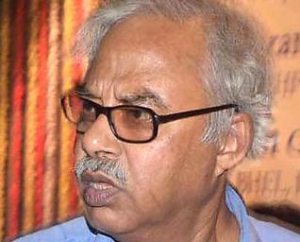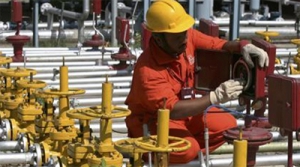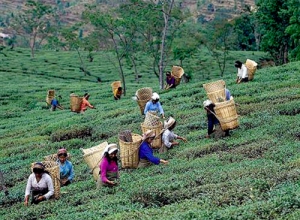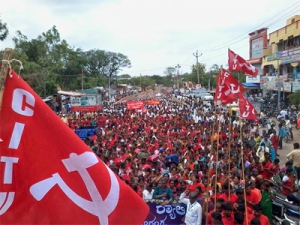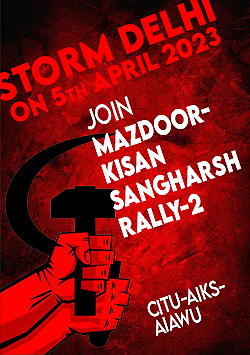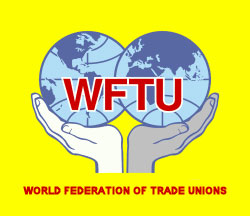Letter to Minister of Chemicals and Fertilizers by Tapan Sen MP on Drug Pricing
29th August 2014
Dear Shri Ananth Kumar ji,
I request your urgent intervention in bringing about effective corrective action to the gross perversion created in the market of the essential and life savings drugs severely affecting the right to access to those essential and life saving drugs at affordable price for the mass of the common populace through the Drug Prices Control Order, 2013(DPCO, 2013), introduced by the previous government. The DPCO 2013 brought 387 odd drugs under the price-control regime but simultaneously the basis of stipulation of the ceiling price was changed from the cost-based approach prevalent earlier to market-based average price regime thereby rendering the price-control meaningless rather deceptive. Moreover the manner, drugs have been listed under DPCO suffered from serious inadequacies in terms of coverage of the actual medicinal necessities/usage by the common people, defeating the very purpose of price-control of essential and life saving drugs for the benefit of common people. Therefore, the DPCO, 2013 needs a thorough overhauling both in respect of enlisting the essential drugs ensuring full coverage of the drugs needed and used as essential and life-saving and also in respect of basis of stipulation of celing price to be made on a cost-based approach.
The basic issues involved may be presented as following:
1. The previous UPA-II Govt. introduced a Drug Prices Control Order(DPCO), 2013 following direction of the Supreme Court. But Supreme Court never directed a switch-over from cost-based pricing to market-based average pricing for drugs listed in the control order.
2. But the order departed from the policy so far followed to determine ceiling prices of medicines from cost based regime to market based regime which is average of prices of brands of a particular medicine of all the brands sharing one per cent and above of the total sale. This resulted in increase in the prices of essential drugs, both within and outside control on the one hand and also phenomenal increase in the profit of the already high-profit-minting drug barons. Is that the purpose of the Drug Prices Control Order, 2013?
3. This departure is unwarranted since nowhere in the world, price control measures of medicines have been determined on the market based prices only.
4. The National Pharmaceutical Pricing Authority (NPPA) was given the task of determining the ceiling price of all the medicines given in the National List of Essential Medicines (NLEM) prepared in 2011.
5. The UPA-II Govt. took decision of changing to market based pricing in their National Pharmaceutical policy, 2012 when amidst the cost based pricing system itself, the pharmaceutical industry had been earning large amount of profit and was growing by 15% annually. The decision was more to promote the profit of the drug-barons, both domestic and foreign, than giving relief to people in respect of their health-care needs.
6. Moreover, drugs listed under DPCO, 2013 had covered only about 18% of the existing market of essential and life saving drugs, thereby leaving 82% of the drugs of regular necessity to Indian people out of any price-control. According to NPPA’s calculation this became further less to 15% in the year 2013-14.
7. As per NPPA’s own recorded observation, DPCO, 2013 covers very little in the important as well as regularly availed/used therapeutic segments like-antidiabetics (14%);antimalarials (12%); anti-infectives (37%); anti-TB (19%); blood related (01 %); cardiac (29 %);derma (10%);
gastrointestinal (15%); gynaec (14%); hepatoprotectives (00%); HIV/ AIDS related (27 %); hormones (44%); neuro/ CNS (18%); opthal/ otologicals (06%)/01%); ;pain/analgesics (10%); respiratory (06%); stomatologicals (00%); vitamins/ minerals/ nutrients (01%); vaccines (32%)
8. This shows that the so called price control through DPCO, 2013 ultimately turned out to be a deception of common people, in reality, generous relief has been provided to the already high profit earning pharmaceutical companies including the multinational companies fleecing the mass of the common people, sometimes forcing them sell everything including themselves to survive from various ailments thrust upon them both by the society, environment and the nature.
You will definitely appreciate, such a situation must not continue and urgent measures are required to correct perversion created in the pricing of essential and life-saving drugs by DPCO, 2013. The pricing regime for the purpose of price control must be brought back to the cost-based regime and the list of drugs under control need to be thoroughly overhauled to include all drugs of essential necessity from all therapeutic segments. All the stakeholders including the consumers and the trade unions in the concerned sector should be consulted for the purpose.
I request you to please appreciate the gravity of the issue and do the needful in due consideration of the observations and suggestions given hereinabove.
With regards,
Yours sincerely,
( TAPAN SEN )
Shri Ananth Kumar
Minister for Chemicals and Fertilisers
Govt of India
Shastri Bhawan
New Delhi
Illegitimate drawal of natural gas
Awaiting early response,
With regards,
Yours sincerely,
(TAPAN SEN)
Meeting of Tea Garden Unions with Minister of Commerce and Industries
ON
Central trade unions to hold national protest convention in delhi against labour law amendments
8th August
PRESS RELEASE
A meeting of the leaders of all Central Trade Unions was held at the INTUC Headquarters, New Delhi on 7th August, 2014. Among those participated in the deliberations included Tapan Sen, M.P., General Secretary, CITU, Gurudas Dasgupta, General Secretary, AITUC, Brijesh Upadhyaya, General Secretary, BMS Harbajan Singh Sidhu, General Secretary, HMS. The meeting was presided over by G.Sanjiva Reddy, President, INTUC.
At the end of the meeting, a statement has been issued. The substance of the statement is that all the Central Trade Unions have strongly opposed in one voice the onslaught on the working class by the Narendra Modi Govt. through its move of massive amendment of various fundamental Labour Laws and that too unilaterally totally ignoring the Central Trade Unions.
Therefore, all the Central Trade Unions are vehemently opposed to both the unilateral path and dangerously anti-labour contents of the amendments (already legislated by Rajasthan Government and moved in Parliament by Modi Government). While the role of the Rajasthan Govt. was condemned for their first initiation in the matter, it is understood that things are happening with the approval from the Narendra Modi Govt. at the Centre. CTUs also denounced the move of the Modi Govt to hike FDI in Defence, insurance and Railways and disinvestment in CPSUs.
The meeting has decided a National Protest Convention of Workers in Delhi in the first week of September 2014 where from programme of actions shall be declared. In the meantime, more Rajasthan-centric initiative for powerful united movement of the working class shall be initiated.
TAPAN SEN, M.P.,
GENERAL SECRETARY
Tapan Sen MP and CITU General Secretary writes to CM Maharashtra regarding national disaster of Malin village in Ambegaon, Pune
CITU DENOUNCES ANTI-LABOUR AMENDMENT IN LABOUR LAWS BY RAJASTHAN GOVT
Resolution Adopted in General Council Meeting of CITU at Bellary, Karnataka
Resolution against Continuing Attacks on the People of West Bengal and in Solidarity to Struggles against such Attacks
The General Council meeting of CITU being held on 11-14 July 2014 at Bellary, Karnataka expresses serious concern on the continuing phenomenon of severe attacks and intimidations on our comrades and also con the common people in West Bengal by the TMC led goons and antisocial elements since last 37 months since May 2011 and also in the run up to the election campaign and even after declaration of election results. During this period more than 157 Left and CITU activists were killed and the number is increasing every day. Thousands were physically attacked and injured by the physical onslaught by the TMC goons with the police administration aiding and abetting such attacks and onslaughts. Even after declaration of election results on 16th May 2014 such attacks and intimidation have been continuing in full steam and 12 comrades including two women were murdered. Several thousands are ousted from their areas of work and residence. More than 15000 comrades and activists have been implicated in false cases and many of them were even jailed for months together having been booked on non-bailable cases. Molestation and rape of woman by TMC hoodlums have become almost a frequent happenings in the state. Latest has been the brutal rape of one anganwadi worker by TMC miscreant at Nadia district on 7th July 2014 and it is the same district where the TMC MP had given open threat to get women raped by his men a few days before such dastardly incident of rape. The Police has been actively patronising such attacks shamelessly. After the declaration of election result, intensity of such attack has increased targeting the working people, both in towns and rural areas. Livelihood of the people are being attacked by way of ousting thousands of small farmers from their land; evicting contract workers in thousands in several industries and replacing them with new set of workers with lower wages in connivance with the contractors; blockading functioning of numerous small cooperatives and self-help groups through terrorand violence; and even forcibly closing down small shops and similar small businesses through violence and extortions—all designed to maintain an atmosphere of terror and fear among the people at large and prevent any opposition to the reign of extortion and loot by the TMC goons with the active support of administration. The main purpose behind such attack is to sustain an atmosphere of terror maiming all kinds of dissent and protest against such beastly misrule of the TMC Govt as well as the anti-social and anti-people activities of the miscreants under their shelter. And the basic aim is to marginalise and eliminate Left, it being the only potential opponent to the regime of loot and plunder under stewardship of thecorporates either through TMC in West Bengal or through BJP at the centre.
The democratic right of holding meetings, rallies etc are being sought to be denied to the Left parties and even other trade unions and mass organisations. Also many non-political progressive organisations are being obstructed to have their activities involving mass of the public. Refusal of permission by the police administration to hold public meeting, even hall meetings and using mike throughout the state at the instigation of TMC has become almost a regular affair. Even labour department officials are being directed by the TMC Govt or their cohorts not to respond to the complaints or grievances raised by the trade unions and not even call conciliation meetings. Massive corruption, irregularities, nepotism, and anarchy in every segment of social life and governance being openly practiced by the TMC brigade is continuing and entire administration has been working overtime to ensure that nobody can raise their voice against such anarchy and hoodlumism. In fact total abrogation of all democratic rights of the people to collectively voice concerns and dissent had been the project of the ruling party in the state and that has gained momentum after the 16th Lok Sabha election.
CITU and other mass organization of the Left parties have been bravely combating such situation while carrying on their organized opposition and protest against such anarchic regime and denial of democratic rights to common people by the TMC regime and their virtually lumpen-led administration. Other trade unions like HMS, AICCTU and INTUC etc are also joining protest against such attacks and onslaught on democratic rights.
The General Council meeting of CITU, while condemning such lumpen-raj in West Bengal, expresses full support and solidarity with the struggle by CITU, other mass organizations and the Left parties and demands upon the state Govt in West Bengal to put a stop attack and onslaught on the Left parties, trade unions and mass organizations forthwith. CITU calls upon working people and trade unions all over the country to organize solidarity action and campaign against the ongoing brutalities by the fascistic lumpen-led TMC regime on the democratic people of West Bengal.
Resolution on Union Budget 2014-15
The General Council meeting of CITU being held on 11-14 July 2014 at Bellary, Karnataka denounces the anti-people Budget (2014-15) of the Narendra Modi Government. The Union Budget (2014-15) is an exercise in piloting large scale FDI-PPP mode in the financial and policy governance of the country under BJP rule. It followed the same policy trajectory deregulation, privatization and corporate-orientation so long followed by its predecessor the UPA Govt which has been rejected by the people in election. And pursuit of these policies by UPA has landed the national economy in gloom with dwindling growth rate, continuing inflationary spiral and aggravating unemployment. The Budget has set in motion the process of betrayal of the promise for “so called good days” made by Modi in his election campaign. The Finance Minister has said in his Budget speech, “ these are only the first steps and are directional.”
The Finance Minister, just three days before the presentation of his Budget spoke in Rajya Sabha on 7th July 2014 while replying to debate on “price rise” that any exercise in containing fiscal deficit through cutting down expenditure will lead to contraction of the economy in a situation of already dwindling growth rate of sub-5 per cent. He repeated the same statement orally in Lok Sabha while presenting the Budget. But while making high sounded commitment and promises for all round growth in his budget speech, in actual budgetary exercise, the Finance Minister meticulously practiced the same route of drastically cutting down central plan outlay on almost all heads impacting common people like Agriculture, rural development, Transport, General Economic Services and Social Services etc. The Ministries of Housing & Urban Poverty Alleviation, Human Resource Development and the Department of School Education and Literacy in particular and Women & Child Development also faced a drastic cut in allocation of funds. The share of SCs and STs in plan expenditure is kept far below (by Rs 47000 crore) the stipulation of planning commission guidelines based on proportion of population. Therefore, the first budget of the Modi Govt took off engineering a deceit on the people.
On the other hand, the Budget has launched onslaught against various flagship welfare schemes. MGNREGA is going to be immediate target of attack due to the policy pronouncement in the Budget that State Governments will have to spend two-third of the revenue transferred in ‘capital asset creation.’ Also a move is afoot to turn the right based employment guarantee legislation into just a welfare scheme with no guarantee in employment.
While engineering a drastic cut in expenditure on almost all heads impacting common people aimed at containing fiscal deficit, the budget remained reluctant in taking any action in arresting organized pilferage from public exchequer in the form of deliberate tax default by big corporate houses which reached a huge sum of Rs 4.18 lakh crore on account of corporate tax and income tax by the end of 2012-13 of which Rs 72901 crore is not under dispute. Rather the measures envisaged in the budgetary proposal to avoid dispute and litigation on tax claim are basically designed the defaulters a long hand to legitimize the default and pilferage from the public exchequer.
Added to this is the decision to constitute the Expenditure Management Commission to look into basically the subsidies for common people aiming at further deduction in the same. The Budget has already proposed a cut in subsidy on petroleum to the tune of Rs 22054 crore which would have a cascading effect on prices of all goods. And such cascading effect on prices of goods and services is going to be perpetual as the Budget announces total decontrol of diesel pricing before the end of current financial year.
Simultaneously, the budget reduced the direct tax leading to a revenue loss of Rs 22200 crore while increasing the indirect tax burden to the tune of Rs 7525 crore. And the manner the budgetary proposal extended liberalized concessions/reduction of customs and import duty on various heads, the additional revenue of Rs 7525 crore in indirect tax means a larger revenue on account of tax on domestic consumption goods to be borne by common people already reeling under continuing price-rise and mounting burden of unemployment and joblosses.
The Budget has announced raising of FDI cap in defence and insurance sector from existing 26% to 49% musct to the detriment of the interests of national economy. The target for revenue from PSU divestment has been set at a huge amount of Rs.63,000 crore and the Finance Minister has announced that instead of earning dividend from PSUs they prefer divestment of Government equity in the PSUs. Number of measures have been incorporated in the Budget to actually weaken the public sector banks making them easy prey of privatization policy of the Government.
Budget while sounding high on promoting investment for boosting manufacturing sector, practically relied on good intention of the private investors through more liberal incentives and tax concessions. In an atmosphere of shrinking market and declining purchasing power of the people owing price-rise and industrial sickness, incentives and tax concessions cannot boost employment generating investment except causing revenue losses. Rather the measures announced in the budget for liberalization of tax regime on portfolio investment, transfer-pricing and mutual fund and steps envisaged for energizing capital market etc would attract flow of investment more towards speculative market than employment generating productive investment. That will definitely make the corporates and big business, both domestic and foreign, happier while common people will be left high and dry.
In respect of almost all development expenditure including various infrastructural projects, the Budget relied more on PPP and FDI despite dismal performance and non-materialisation of PPP during the previous regime. Rather, the Budget indicated further concessions/incentive to private players in the name of reducing rigidities and taking a more liberal approach.
On the whole, the first budget of the NDA Govt has basically turned out to be grossly anti-people in character promoting more aggressive loot by the corporate and big-business houses on the mass of the people. The General Council of CITU condemns such anti-people Budget and calls upon the working people and trade union movement to build united opposition to the said anti-people budget and related policies of deregulation, privatization for promoting corporate loot on the people.
Resolution on Allocation under scheduled Castes Sub Plan
This meeting of the General Council of CITU being held in Bellary on 11 – 14 July 2014 strongly condemns the decline in the allocation for the Scheduled Castes and Scheduled Tribes under the Scheduled Castes Sub Plan (SCSP) in the Union Budget placed by the Finance Minister in the Parliament.
The SCSP, one of the most important budgetary issues for Dalits was initiated 35 years ago, became necessary as the SCs were continuously denied their adequate share of government funds essential to meet their needs and improve their conditions. It mandates setting aside a proportion of the total Plan outlay of the Centre and state governments equivalent to the proportion of the SCs at the national and state levels, exclusively for their development. According to the Census 2011, SC population comprises 16.6% of the total population.
However, the total plan allocation in this Budget has declined in real terms by around 4%. Moreover the total share of SCs and STs in the total plan expenditure is falling short by Rs 47000 crores and Rs 14000 crores according to the Planning Commission guidelines based on the proportion of the population. It is also a matter of serious concern that what is being allocated is also not being spent. While Rs 41561.13 crores was allocated for SCSP in the Budget 2013 – 14, according to the Revised Estimates only Rs 35800.6 crores have been spent. There have been several instances of SCSP funds being diverted to entirely different uses like construction of flyovers, Commonwealth Games etc. The Twelfth Five Year Plan document itself had to admit that ‘The expenditure in many states/ UTs was not even 50% of the allocated funds. No proper budget heads/ sub heads were created to prevent diversion of funds. There was no controlling and monitoring mechanisms’
In order to ensure effective implementation of the SCSP, there is an urgent need to enact a national legislation to provide statutory backing to the provisions of the SCSP.
This General Council meeting demands that the government of India should
- Enact a legislation providing statutory status to SCSP in this Budget session itself
- The government should allocate 16.6% of Plan Outlays for the SCSP
- Take effective measures to ensure that the funds are spent for the development of Dalits and are not diverted for other purposes and also that the funds are spent in time and are not allowed to lapse.
Resolution on Israeli aggression on Palestine
The meeting of the General Council of the Centre of Indian Trade Unions (CITU) at Bellary from 11th to 14th July expresses its anger and protest against the Israeli attack on Gaza. For more than one week Gaza is being bombarded by the Israeli armed forces killing more than 165 people including many children. The attacks are being targeted on the residential areas. Latest reports say that Israeli armed forces have begun invasion at ground level also and thousands are forced to flee. The whole region is under threat of escalation of war.
CITU condemns these attacks, which are in contravention of international lands. In the back ground of happenings in the middle-east region, these Zionist attacks by the closest ally of US imperialists will aggravate the situation.
The CITU demands the Govt. of India to condemn Israeli aggression on Palestine and take necessary steps to bring international pressure on aggressors. CITU expresses solidarity with the people of Palestine and calls upon its affiliates and democratic movements to protest against the Zionist aggression.
CITU General Council Meeting inauguration at Bellary Karnataka
CITU General Council Meeting inauguration at Bellary Karnataka
RAILWAY BUDGET 2014-15: A ROADMAP FOR PRIVATISATION
8th July 2014
PRESS RELEASE
The Centre of Indian Trade Unions(CITU) expressed serious concern at the BJP Govt’s first Railway Budget, 2014-15 which declares its dependence on so called public private partnership, private investment including FDI for funding its infrastructural and capacity augmentation projects. It reflects nothing but continuity of the same pro-corporate policy of the much discredited Congress Regime, rather in more aggressive form.
Just weeks before the Railway Budget, steep hike in passenger fares and freight charges to the tune of 14.2% and 6.5 % respectively exposed the brazen undemocratic as well as anti-people modus operandi of the BJP Govt. Added to this is the budgetary announcement of linking the future prices of travel with fuel adjustment factor which will result in virtual deregulation of railway fares providing for automatic increase in railway fares with the increase in price of fuel. This is nothing but an arrangement for perpetual increase of burden on common people.
Further, the thrust on PPP, FDI and outsourcing in various segments of railway operation and services as outlined in the current Railway Budget, is going to make the situation worse. Despite abject failure of the same exercise on depending on PPP route for infrastructural expansion and services during the UPA regime as reflected in plan expenditure in 2013-14 falling short by a whopping “Rs 59,359 crore from the target due to non-materialisation of PPP targets”, the Modi Govt also preferred to stick to the same provenly failed route. This means, either the expansion work will suffer or the private investors’ lobby will extract more undue concessions from the Govt in the process of their response, finally increasing the burden on the common people. Precisely, that had been the past experience of all PPP projects in sea-ports, airports, roads etc during the UPA’s tenure which increased the burden on the consumers and the people in a big way.
Despite admitting in the budget the abject failure of the Railways to implement the declared and sanctioned projects even to an insignificant extent, resulting in huge accumulation of unfulfilled projects announced in successive budgets, the current Budget failed to present any concrete roadmap for their execution except giving sound bites on prioritization, time frame etc. Even the new announcements made in the current budget do not have appropriate budgetary back-up, rendering them to be deceptive in real sense.
The Budget sounded high on Govt’s commitment to safety, but kept absolute silence about filling up around 3 lakh vacancies in the Railways, majority of which are related to management and maintenance of safety standards in railway operation.
CITU records its condemnation to this anti-people and privatization oriented Railway Budget and calls upon the working people to voice their protest against such retrograde exercise of the Modi Govt.
Issued by
(TAPAN SEN)
General Secretary
NO TO ANY DILUSION OF THE RIGHTS ENVISAGED UNDER MNREG ACT
Press Release
4th July 2014
CITU DENOUNCES THE RAJASTHAN GOVT’S MOVE TO CONVERT THE ACT INTO A SCHEME
The Centre of Indian Trade Unions denounces the move by the BJP Govt in Rajasthan to dilute and scrap the “right based provisions for employment” under Mahatma Gandhi Rural Employment Guarantee Act (MNREGA) as reported by the press. The move initiated by the Chief Minister of Rajasthan to propose various changes in the MNREG Act and the various propositions made thereon are basically designed to strip MNREGA of the legal guarantee for employment and convert the right based Act into a scheme.
It appears, the BJP led Govt of Rajasthan is playing the role, in the backdrop of present political combine ruling at the centre (NDA) to pilot the programme for bringing about all brazenly anti-worker changes in the entire labour law regimes in the country. Its earlier decision to amend Industrial Disputes Act and the Factories Act etc was also meticulously designed to empower the employers to retrench workers at will, push sizable section of factories and their workers out of the coverage of most of the labour laws and curb the rights of the trade unions. And now the propositions for changes in MNREGA basically seeks to take away whatever legal guarantee for minimum 100 days employment available to rural households in a situation when rural unemployment has assumed an alarming proportion.
CITU vehemently condemns such move of the Rajasthan Govt, demands upon the Central Govt not to indulge in such exercise. CITU calls upon the working people throughout the country and all the trade unions irrespective of affiliations to unitedly resist any such anti-people move. CITU demands that the MNREGA must be implemented in letter and spirit to ensure full 100 days’ work for all rural households and also the provisions for unemployment allowance as envisaged in the Act.
Issued by
( TAPAN SEN )
General Secretary
